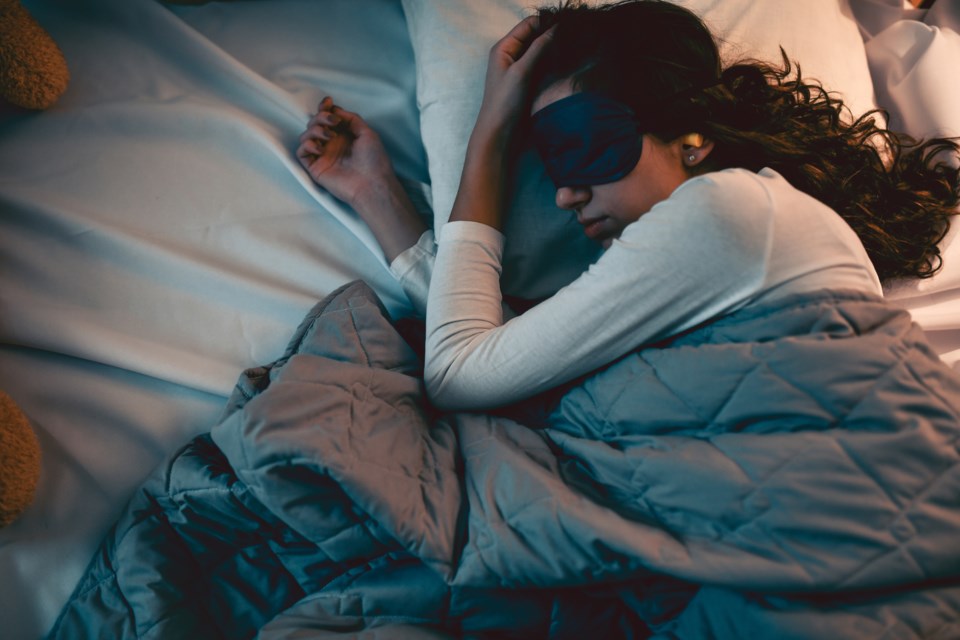Health
Unlocking Better Sleep: The Art and Science Behind Rest

Understanding the significance of sleep is essential for overall health. Claire Nielsen, a recognized expert in sleep science, emphasizes that sleep is not merely a period of rest but a critical phase during which the body repairs itself and various systems reset.
The importance of quality sleep has gained increased attention, particularly in light of rising stress levels and sleep disorders. Recent studies indicate that globally, approximately 40% of adults report insufficient sleep, leading to a myriad of health issues, including anxiety, obesity, and cardiovascular diseases.
Exploring Sleep Mechanisms
During sleep, several physiological processes occur. The body undergoes cellular repair, hormone regulation, and memory consolidation. The typical sleep cycle comprises several stages, including light sleep, deep sleep, and REM (Rapid Eye Movement) sleep. Each stage plays a distinct role in enhancing cognitive function and physical health.
According to the National Sleep Foundation, adults should aim for between 7 to 9 hours of sleep each night. Insufficient sleep can disrupt these essential processes, leading to long-term health consequences. Nielsen advocates for understanding personal sleep patterns and making necessary adjustments to improve sleep quality.
Practical Strategies for Better Sleep
To promote better rest, several strategies can be employed. Sleep hygiene practices—such as maintaining a consistent sleep schedule, creating a comfortable sleep environment, and limiting exposure to screens before bedtime—can significantly enhance sleep quality.
Nielsen also highlights the importance of mindfulness and relaxation techniques. Activities such as meditation, yoga, and deep breathing exercises can help prepare the mind and body for sleep. Research suggests that integrating such practices into daily routines can lead to improved sleep outcomes.
Moreover, understanding the impact of diet on sleep is crucial. Consuming heavy meals or caffeine close to bedtime can hinder the ability to fall asleep. Instead, lighter snacks that include sleep-promoting nutrients, such as magnesium and tryptophan, may facilitate better sleep.
In a world where sleep is often undervalued, it is vital to recognize its profound effects on mental and physical well-being. As more individuals face sleep challenges, the insights provided by experts like Claire Nielsen play a crucial role in promoting awareness and encouraging healthier sleep habits.
By prioritizing sleep and implementing effective strategies, individuals can work towards achieving restorative sleep, ultimately enhancing their quality of life.
-

 Science2 months ago
Science2 months agoToyoake City Proposes Daily Two-Hour Smartphone Use Limit
-

 Health2 months ago
Health2 months agoB.C. Review Reveals Urgent Need for Rare-Disease Drug Reforms
-

 Top Stories2 months ago
Top Stories2 months agoPedestrian Fatally Injured in Esquimalt Collision on August 14
-

 Technology2 months ago
Technology2 months agoDark Adventure Game “Bye Sweet Carole” Set for October Release
-

 World2 months ago
World2 months agoJimmy Lai’s Defense Challenges Charges Under National Security Law
-

 Technology2 months ago
Technology2 months agoKonami Revives Iconic Metal Gear Solid Delta Ahead of Release
-

 Technology2 months ago
Technology2 months agoSnapmaker U1 Color 3D Printer Redefines Speed and Sustainability
-

 Technology2 months ago
Technology2 months agoAION Folding Knife: Redefining EDC Design with Premium Materials
-

 Technology2 months ago
Technology2 months agoSolve Today’s Wordle Challenge: Hints and Answer for August 19
-

 Business2 months ago
Business2 months agoGordon Murray Automotive Unveils S1 LM and Le Mans GTR at Monterey
-

 Lifestyle2 months ago
Lifestyle2 months agoVictoria’s Pop-Up Shop Shines Light on B.C.’s Wolf Cull
-

 Technology2 months ago
Technology2 months agoApple Expands Self-Service Repair Program to Canada









